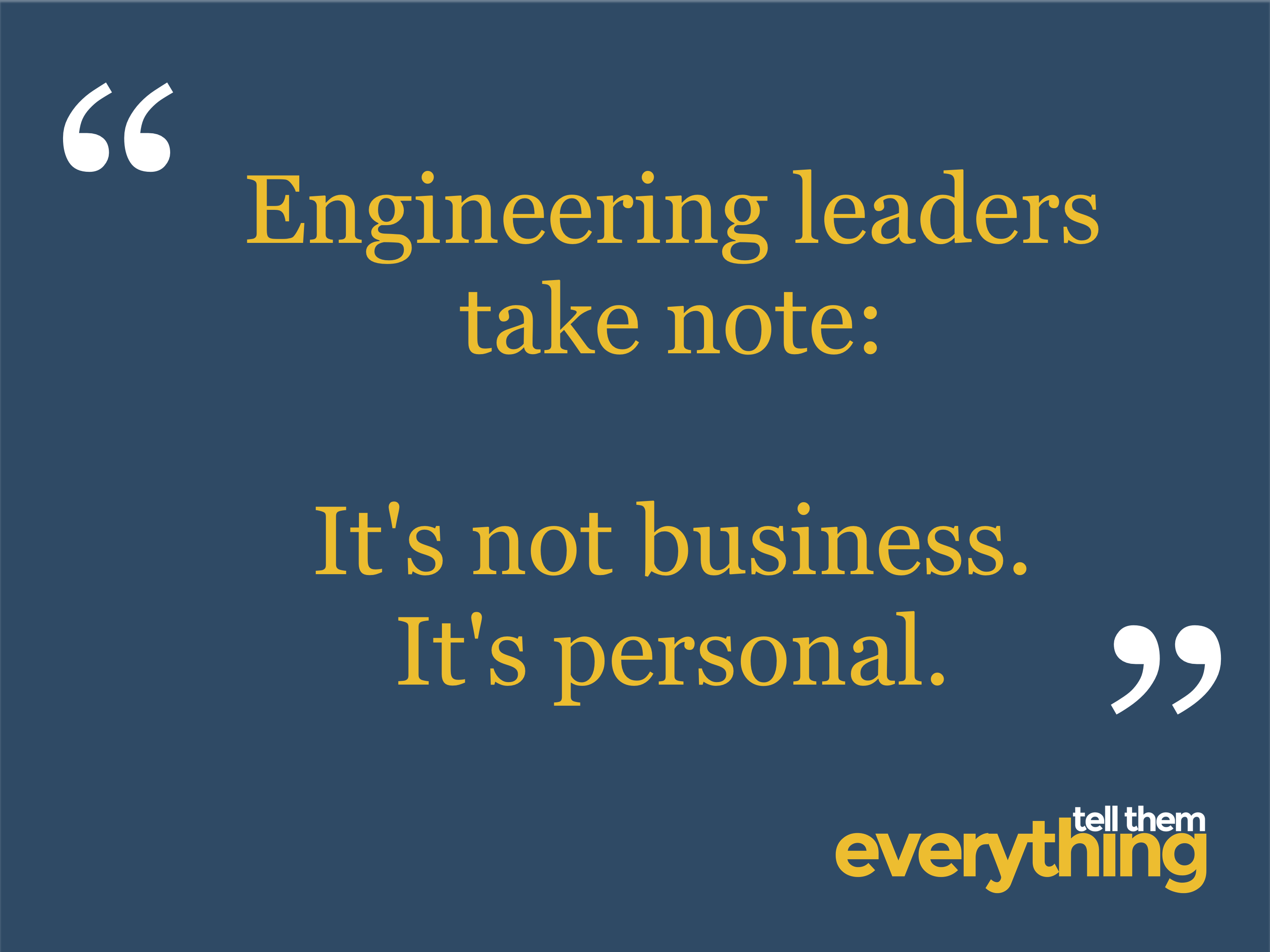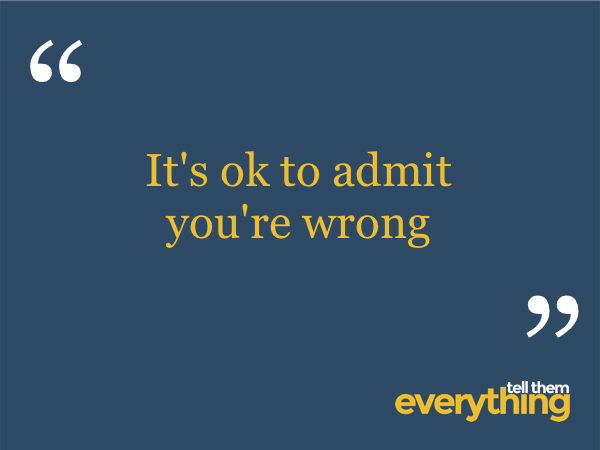Your job is what you make it.
Go into it with a bad attitude, and that will be reflected back to you. Be positive, help others and solve problems together and you'll be a lot happier at work.
This is true for everyone of course, not just Engineering leaders.
I've talked before about hiring for culture fit, not expertise, but it still surprises me when candidates show up for interviews with a bad attitude. Some don't know what job they're interviewing for, others are so arrogant and condescending because the interview process is so - *sigh* - unnecessary for them.
Perhaps they were happy at a job, and the company changed direction, the management was replaced or over time they realized they didn't like what they were doing.
You are in control of your own destiny though, so for goodness sake leave for something that will make you happier.
Should you get personal at work?
I was reading Should You Get Personal at Work? where Russell Thompson talked about bringing personal issues into work.
I agree with him that everyone on the team will benefit from getting to know each other.
As Russell says:
I suppose that when someone shares something personal with me, it shows me that they are not afraid to be vulnerable. This says a lot for our relationship, and it means that they feel that I will not judge them.
Mutual Trust.
He makes the point that if someone is having personal issues at home, it's bound to affect them at work. Encourage an environment where the team is able to share this (in confidence of course), so you can make any necessary adjustments to their workload or stress level.
Russell hit the nail on the head with his article, but the most eye-opening part were the comments.
Some examples:
" No...your co-workers are not your friends with who to share personal information...and vice-versa. You will quickly find out the definitive meaning of gossip
" You haven't been around much. Wait 'til one of your so-called employee-friends run to the boss and complain about you
" Business is or should be conducted at arm's length. People whom you think are your friends and are loyal to you suddenly change if it is in their interests. They are not to be trusted
" the male is more business and results oriented, talks less, and doesn't value having a personal relationship with subordinates as much
And so it goes on. There are so many bitter and unhappy people out there, and it's so unnecessary.
Incidentally, using the word "subordinate" in the comment above tells me so much about a person. In his eyes, his team aren't his equal. They are, as the dictionary says, "regarded as of lesser importance". So, so wrong.
I'm fully aware that my team are better at their tasks than I am today. I may have been as good earlier in my career, but I have different skills now.
Feeling superior is a sign of insecurity. You cannot force people to respect you.
It's not business. It's personal

If you've ever heard someone say to you "it's not personal, it's business", it's likely that they just did something bad to you.
Probably fired you, right?
I've heard those words, and it was a sad moment, but not why you'd think - my previous respect for that person instantly evaporated. Like trust, respect can take years to build and a minute to lose.
And why not be honest anyway? Your team would rather know the real story than the politically correct, face-saving version.
Tell Them Everything.
If someone on your team screws up, they probably already know it. Have an open and honest conversation about it. How can we prevent it happening again or detect it earlier or automatically?
These are all people not robots. OF COURSE it's personal.
You'll need courage
Sometimes doing the right thing for the team is hard. All leaders need courage to make the right choices. Sometimes the right choices can get you fired - so choose carefully what you can live with. But don't devalue your integrity.
As an Engineering leader you may have to push back against external forces wanting you to do the wrong thing - and remember, everyone is watching. Your team sees all.
Do the right thing, and the team will support you, will follow you, and will be courageous in turn. You'll build relationships with a large network of people who trust you and can help each other.
That's why being personal is so important. Once you find that connection to your team, it's priceless. But be REAL with your team - they'll detect "fake" easily and you only get one shot.
This takes time. Perhaps a long time - you may be working on this for a year, and one day witness behavior that show the team has turned the corner, that they trust each other, and you.
Be consistent. Invest time in your team like you do (or should) going to the gym. You don't get results in one day or one month.. it's what you do every day for a year that counts. It's a lot of little things.
Be honest
In the excellent How to have an honest one-on-one with an employee Claire Lew talks about honesty in one-on-ones, but in particular:
Make empathy your mission. Every time I have a one-on-one, I have a single mission: to understand how the other person is feeling. Everything else comes second.
You have to make that personal connection with the team member, let them know that you want to know how you screwed up, how you can improve things, what you can do to make their job/life easier and more productive.
Admit it when you screw something up. I've made dumb comments that dropped like bombs into meetings. It's hard to undo that, but admitting it and asking for help and forgiveness will show others that it's ok to screw up sometimes.

A simple recipe.
Hire for personality. Encourage culture and collaboration. Remove the bad fits. Get out of the way.
And.. Tell Them Everything

